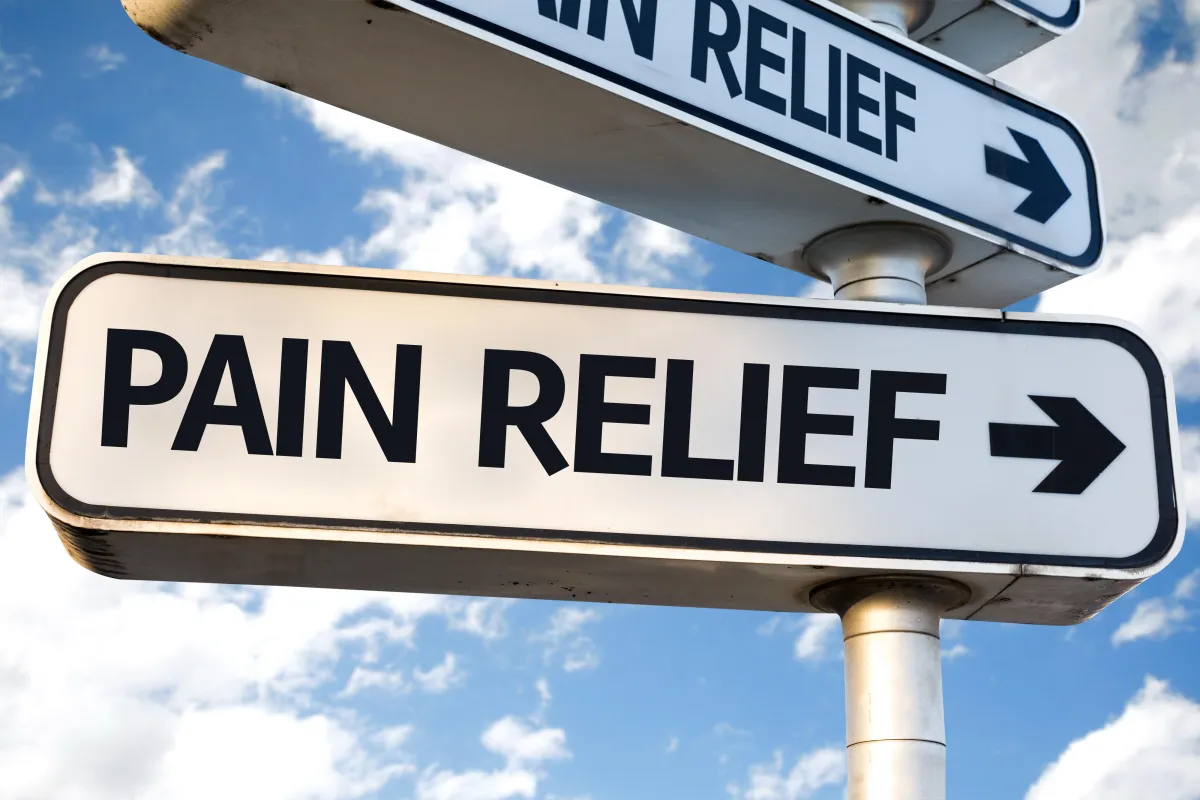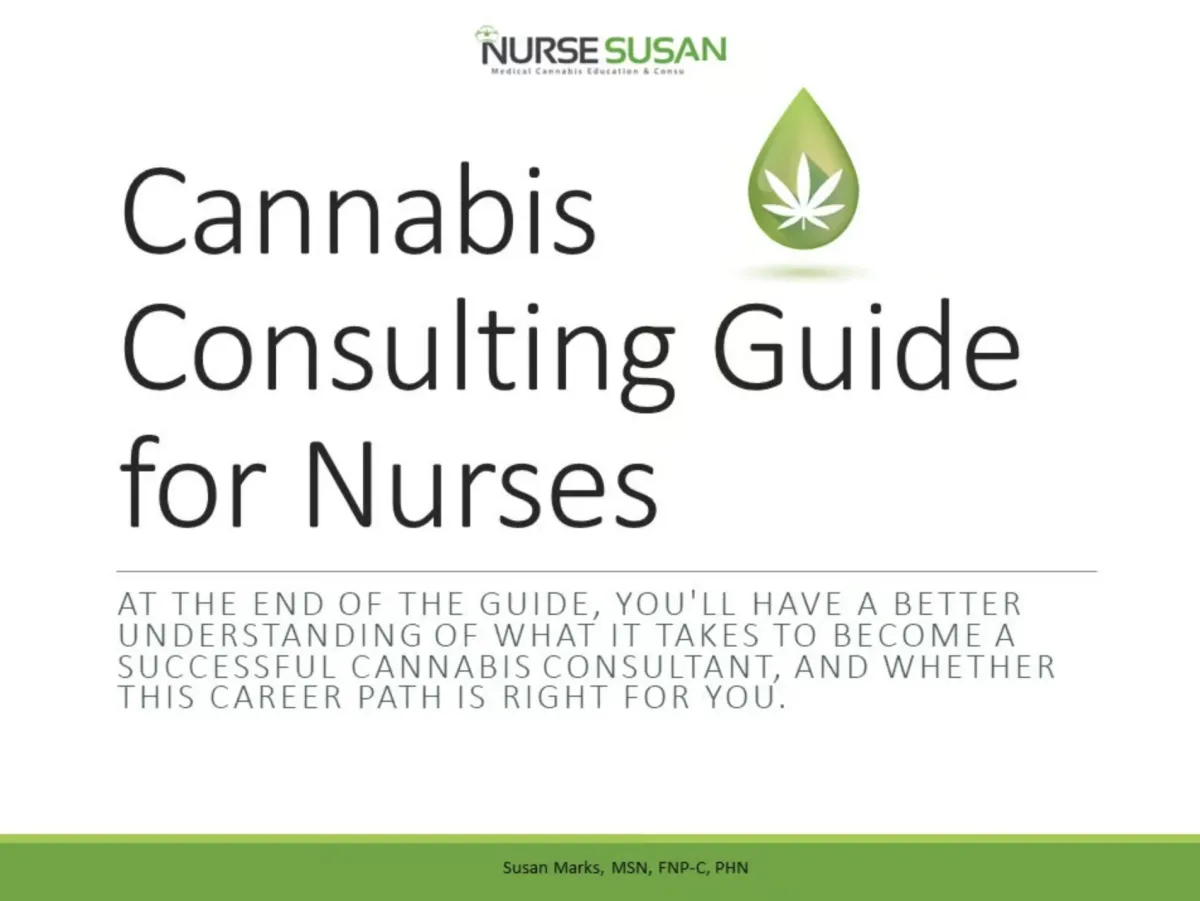Medical Cannabis Consulting Has Opened Up a Whole New World For Nurses!
Do you remember DEAR ABBY? Back in the day, she would answer questions regarding etiquette and social graces. Today, people want to know about cannabis, and I am here to answer their questions!
Dear Nurse Susan

Can Cannabis Help My Chronic Pain
Dear Nurse Susan,
I suffer from Fibromyalgia and as you would expect I have good days and bad days…..and the bad days are really hard. I support my family so missing work isn’t an option and I use prescription meds to get through most days. I’ve read that cannbis is an alternative to opioids, but I don’t want to trade in one problem for another. Can you explain how cannabis can replace the current pain medication I’m using.
Thank you,
Looking for Help.
Dear Looking,
The cannabis plant is more than 70 million years old, and has been used for fiber, food, medicine, paper, clothing, textiles and in spiritual practices. Human’s and cannabis have evolved together which may be why we have a natural attraction to the plant.
Many chronic pain sufferers are turning to cannabis for relief. The standard therapies for pain relief include non-steroidal anti-inflammatory drugs (NSAIDs) such as Advil, Motrin, Celebrex, Naprosyn, aspirin, and Alleve; Tylenol; and opioids such as morphine, Vicodin, OxyContin and fentanyl. All these therapies come with significant risks. For example, NSAIDs can cause stomach ulcers and bleeding, cardiac arrest, and stroke. NSAIDs are intended for short-term use, i.e., less than 10 days. Tylenol or acetaminophen can cause liver failure leading to death and is toxic to the kidneys. Opioids can cause vomiting, constipation, depression, loss of appetite, and respiratory depression leading to brain injury and death. In 2021, 106,000 people died of opioid overdose. Eighty percent of heroin addicts were addicted to prescription opioids before starting heroin.
Cannabis side effects are transient and considered mild to moderate, and include dry mouth, euphoria, short-term memory impairment, anxiety, paranoia, relaxation, sedation, heightened sensory perception, altered perception of time, increased appetite, tachycardia, pain relief, lowered blood pressure, tolerance, dependence, tooth discoloration with smoked cannabis, diarrhea, constipation, urinary retention, dry eyes, hallucinations, impaired coordination, and increase phlegm production in cannabis smokers. Cannabis overdose has never led to death; a person can be extremely uncomfortable for several hours, but they do not have to worry about dying.
That is not to say that opioids don’t have their place in pain management. Nothing is better than opioids for acute post-operative or traumatic pain, but opioids are highly addictive and need to be used with caution. Addiction can develop after only 7 days of continuous use, and for some people as few as 3 days. Opioid withdrawal can be a life-threatening experience with nausea, vomiting, seizures etc. They are not appropriate for chronic pain management, and have very little effect on nerve pain, such as trigeminal neuralgia (also known as the suicide disease), sciatica, shingles etc. If you have never experienced nerve pain and have difficulty understanding how bad it can be, here is a short video clip of a trigeminal neuralgia attack:
Fortunately, cannabis is effective and appropriate for chronic pain. It is only slightly more addictive than coffee, tolerance can be reversed by abstaining from using cannabis for 48 hours, and although it can cause psychological dependence, the physical withdrawal symptoms are like caffeine withdrawal: 2 weeks of insomnia, irritability, and headaches.
Cannabis is effective with nerve pain, it reduces nerve inflammation, and protects the nerves. See my earlier article on cannabis for migraine headaches. Cannabis is a powerful anti-inflammatory, twice as strong as hydrocortisone, and 20 times stronger than aspirin, so it is very effective for arthritis and auto-immune pain, such as fibromyalgia and Crohn’s disease.
If you have been using opioids to manage chronic pain and have developed an addiction there is some good news. When cannabis and opioids are given together there is a synergistic effect which means you can get the same pain control using less opioids. Over time, it is possible to reduce your opioid dose while you increase your cannabis dose, without the withdrawal. If you are thinking of using cannabis to relieve opioid addiction working with a cannabis clinician/nurse practitioner/physician is a must to ensure a safe and effective process.
I have a client with chronic pain who had been taking 180mg of oxycontin for more than eight years. By using cannabis as I just described, she was able to get her oxycontin dose down to 20mg/day, almost eliminating her risk of death by overdose of oxycontin. It took almost one year, but she was able to continue working and have adequate pain control.
If you suffer from chronic pain and want to try cannabis, I recommend working with a cannabis nurse to discover your ideal protocol for cannabis therapy. If you are currently using cannabis for pain management but you aren’t getting the results you seek, here are some ideas to consider:
For inflammation, raw cannabis, THCA and CBDA are effective cannabinoids.
For auto-immune issues, THCA is also your go to cannabinoid.
Whole-plant cannabis medicine is hugely more effective than isolates (CBD only or THC only, i.e. Marinol).
Some people with nerve pain respond best to a combination of THCA, THC and CBD.
A 1:1 ratio of THC and CBD is usually more effective at relieving pain than a THC dominant medicine.
Often, pain is relieved with a low dose of cannabis, so remember to start with a low dose and slowly increase.
If you need a high dose to control your pain, but don’t like the psychoactivity, use a THC-dominant suppository at night, and a CBD-dominant suppository in the morning.
Chronic pain of any sort is a complex and potentially debilitating condition to live with. When you have something that works it’s a great relief and most people are willing to face the double-edged sword of pain reduction and the often significant negative side effects of prescription medication. Cannabis has proven to be a successful alternative for many. If all of what I’ve described here seems complex or confusing, please bear in mind that treating chronic pain and the often complex symptoms that come with it is often a challenge for the best medical professionals. If you are sincerely seeking cannabis as an alternative it is best to work with an experienced cannabis doctor or nurse and unfortunately they are few and far between. You can contact me at susan@dearnursesusan.com for more assistance.
I hope this is helpful to you and other chronic pain sufferers you may share this with.
All the best in your search to alleviate pain,
Nurse Susan

Cannabis Consulting Guide It's FREE!
Click The Button Below and Give Me Your Best Email Address to Get your free Cannabis Consulting Guide, and discover what it is like to work independently with your patients as a cannabis consultant! This may be your next big adventure!

